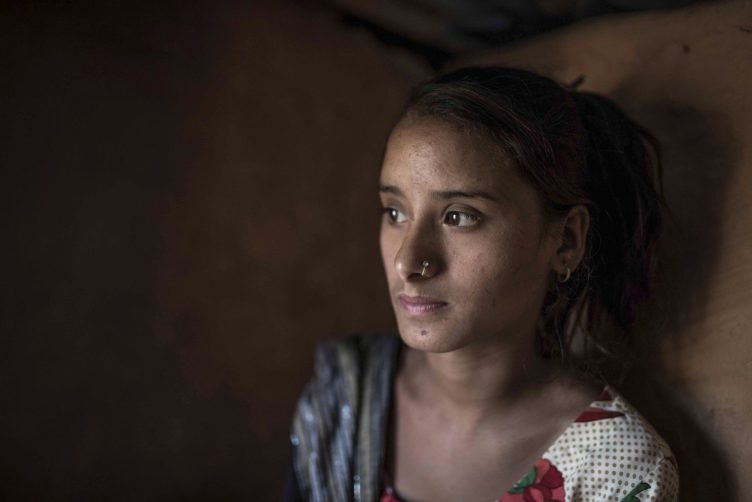Menstrual Health and Mental Health: More Connected Than You Might Think

This Mental Health Month, Days for Girls is highlighting the interconnectedness of mental health and menstrual health. Menstrual health (MH) is defined as, “a state of complete physical, mental and social well-being in relation to the menstrual cycle.” Part of this includes, “a positive and respectful environment in relation to the menstrual cycle, free from stigma and psychological distress.”
Restrictive Factors Affect Menstrual and Mental Health
At DfG, we work to eliminate the stigma and limitations associated with menstruation so that women and girls have improved health, education and livelihoods. Improved health also includes women and girls’ mental wellbeing. Many of the factors that contribute to unsupportive menstrual health environments also negatively impact the mental health of women and girls. This occurs when menstruators face stigmatization, taboo and isolation related to their periods, which can contribute to low self esteem, anxiety and depression. Looking more broadly, the barriers to education, workplace advancement and sexual and reproductive health that occur as a result of inadequate menstrual health can also contribute to mental and emotional distress.
DfG’s Solution
DfG firmly believes that being able to menstruate with dignity contributes positively to mental health and wellbeing. As such, DfG programs work to promote menstrual education and facilitate open and uplifting conversations about periods. In doing so, DfG cultivates safe spaces for individual menstruators and their families, schools and communities – spaces where people can ask questions about sexual and reproductive health and receive accurate answers without shame or fear of stigma. At the grassroots level, DfG Social Entrepreneurs are advocates and certified educators, hosting conversations within their communities to break down menstrual stigma, and supporting the mental wellbeing of women and girls.
At the international level, DfG and many other organizations bring awareness to the fact that when menstrual health needs go unmet, it impacts the mental wellbeing of women and girls. For example, our Advocacy Program has worked to demonstrate the linkages between menstrual health and mental wellbeing, including our event for Self-Care Trailblazer Group’s 2021 Learning and Discovery series: The Role of Supportive Self-Care Environments in Advancing Menstrual Equity.
Looking Ahead
As communities begin to positively talk about menstruation, we break down the stigma and misconceptions that surround it – eliminating the feeling that menstruators should hide their needs or manage them in secrecy, which can bring anxiety and stress. In this way, we can support the improved mental health of women and girls when we remove menstrual barriers and cultivate more open, accepting environments.
While DfG’s mission statement is dedicated to menstrual health, the menstrual process is broad and ongoing, touching many facets of our wellbeing. We recognize the important relationship between mental wellbeing and dignified and supportive menstrual health environments, and strive to promote a positive period experience for every woman and girl, everywhere.
Sources:
Hennegan, J., Winkler, I.T., Bobel, C., Keiser, D., Hampton, J., Larsson, G., Chandra-Mouli, V., Plesons, M., & Mahon, T. (2021) Menstrual Health: A Definition for Policy, Practice, and Research. Sexual and Reproductive Health Matters. https://doi.org/10.1080/26410397.2021.1911618









